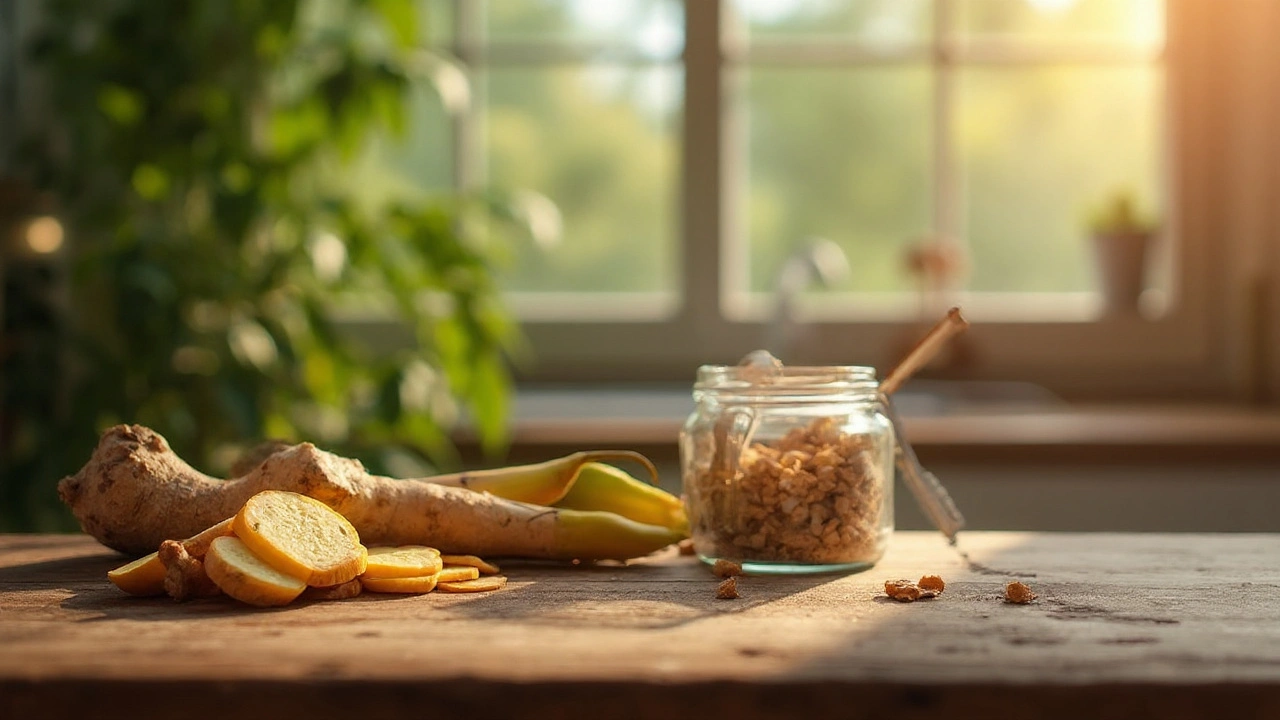Natural Remedies: Easy Herbs and Home Tips for Better Health
When you’re looking for a quick health boost without a prescription, natural remedies are often the first thing that pops into your mind. You don’t need a pharmacy—many simple herbs and home practices can support digestion, mood, and overall wellness. Below, we break down a handful of everyday options and how to use them safely.
Top Herbs You Can Add to Your Routine
Cinnamon bark isn’t just a tasty spice. Ceylon cinnamon, the “true” variety, contains low levels of coumarin, making it safer for daily use. A teaspoon (about 2.6 g) in coffee, oatmeal, or smoothies can help regulate blood sugar and add a warm flavor. If you choose Cassia, keep it to a half‑teaspoon or less to stay within safe limits.
Fennel seeds are another easy addition. They’re great for easing bloating and indigestion. Chew a teaspoon after meals or brew a fennel tea by steeping crushed seeds in hot water for ten minutes. The mild licorice taste makes it pleasant, and the fiber helps keep your gut moving.
Cowhage, also known as mucuna pruriens, is a lesser‑known herb that can boost dopamine levels. A standard supplement provides around 100 mg of L‑DOPA per capsule. Many users report better focus and mood when they take it in the morning with food. Start with a low dose and see how your body reacts.
Other herbs like ginger, turmeric, and peppermint can be added to teas, soups, or smoothies for anti‑inflammatory and soothing effects. The key is to choose high‑quality, preferably organic, products to avoid contaminants.
Safety Tips When Using Natural Remedies
Even natural substances can cause issues if you overdo them. Always check the recommended dosage on the label and compare it with trusted sources. For example, exceeding 1 gram of Cassia cinnamon daily can raise coumarin intake, which may affect liver health.
If you’re pregnant, nursing, or on prescription meds, talk to a healthcare professional before adding new herbs. Some supplements, like cowhage, can interact with antidepressants or blood‑pressure drugs.
Buy herbs from reputable vendors. Look for transparent sourcing, third‑party testing, and clear ingredient lists. Avoid products that promise “miracle cures” or have overly aggressive marketing claims.
Start slow. Introducing one new herb at a time lets you notice any side effects and understand what works for you. Keep a simple journal: note the herb, amount, time of day, and any changes you feel.
Beyond herbs, simple lifestyle tweaks can feel like natural remedies too. Gentle chiropractic adjustments have helped some people with trigeminal neuralgia find relief by easing nerve pressure. While not a cure, regular adjustments combined with proper posture may reduce facial pain episodes.
Hydration, balanced meals, and regular movement are the backbone of any natural health plan. Pairing these basics with the herbs above creates a solid foundation for feeling better without relying solely on prescription drugs.
Ready to try one? Start with cinnamon in your morning coffee, see how it affects your energy and cravings, and adjust as needed. From there, explore fennel tea after dinner or a low‑dose cowhage supplement for mood support.
Remember, natural doesn’t mean risk‑free, but with modest doses, quality products, and a bit of common sense, you can safely incorporate these remedies into everyday life. Give them a try and notice the small but steady improvements they can bring.
Jalap Supplement Benefits: Why This Ancient Remedy Is Disrupting the Dietary Health Scene

Discover why jalap root is making waves in modern wellness. Learn about its unique benefits, how to use it safely, potential effects, and the surprising history behind this trending supplement.